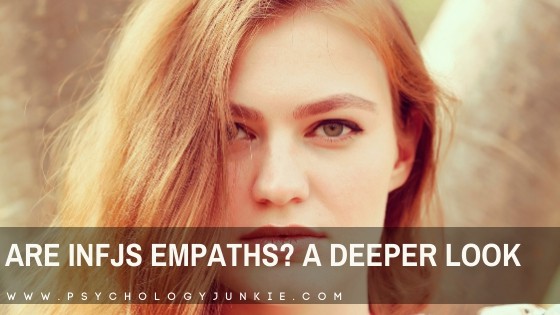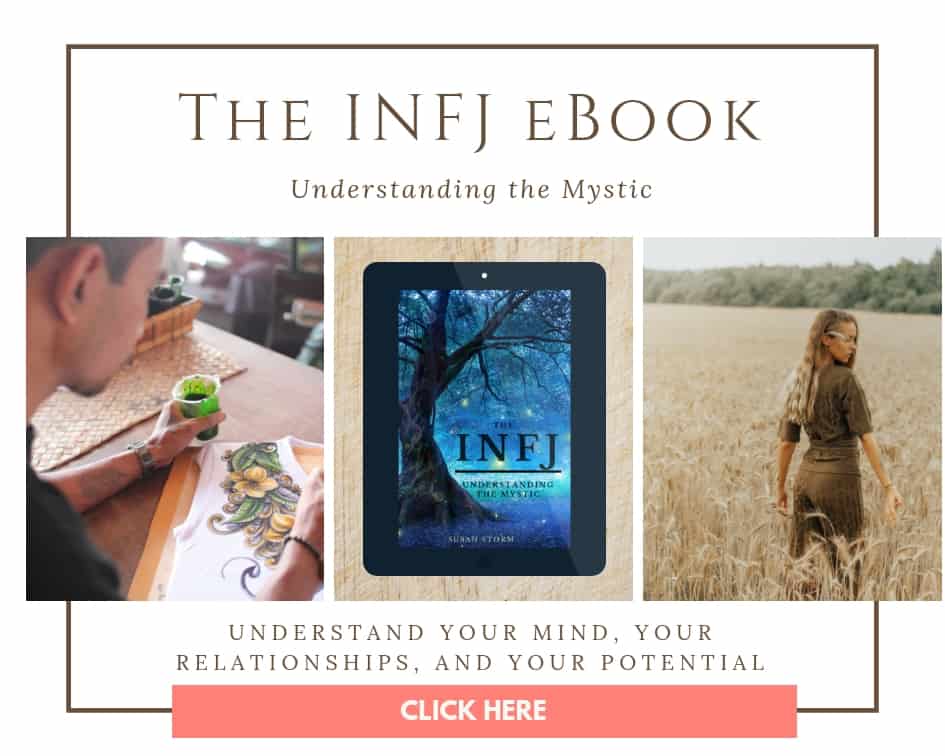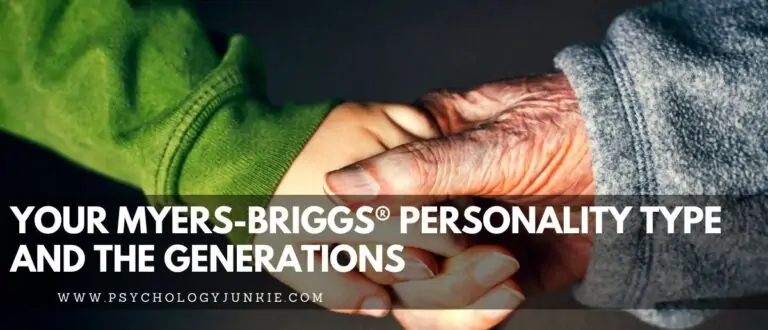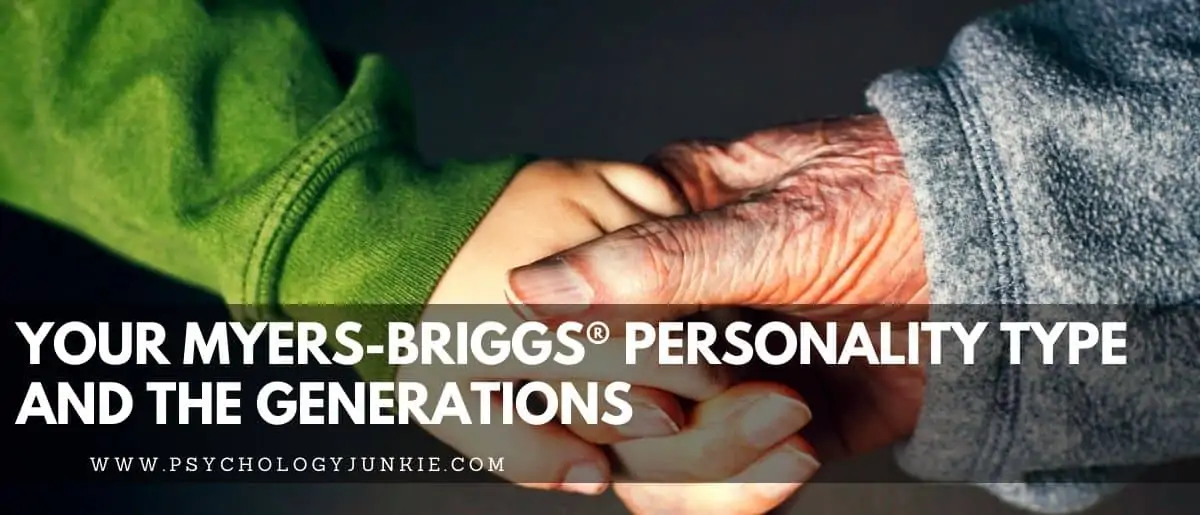Are INFJs Empaths? A Deeper Look
Have you ever wondered if you are an iNFJ empath? One of the questions I’ve gotten repeatedly since I started my blog in 2015 is whether or not INFJs are empaths, or whether “empaths” actually exist. To be honest, I’ve always been a little skeptical of the term because it makes me think of something out of a fantasy movie. I imagine Professor Xavier putting his fingers over his forehead and reading people’s minds. And let’s be real – I don’t think any of us can actually do that with the precision and clarity that he does.
Not sure what your personality type is? Take our new personality questionnaire!

What is an Empath?
Before we delve into this subject, though, let’s take a look at how “empaths” are defined. If you look in the Merriam-Webster dictionary, you’re not going to find a description for “empath.” So I checked with Judith Orloff, M.D., a psychiatrist who writes extensively about empaths and sensitive people in her book “The Empath’s Survival Guide: Life Strategies for Sensitive People.”
Orloff says that the trademark of an empath is that someone will “feel and absorb other people’s emotions and/or physical symptoms because of their high sensitivities. They filter the world through their intuition.”
So are INFJs empaths? Based on this description I would say that many are. At least mostly. We may not absorb people’s physical symptoms necessarily (some might, I’m not sure), but INFJs are known to absorb the emotions of the people around them.
Disclaimer: This article contains affiliate links. This means if you buy something through the link that I get a small percentage to help keep this site running.
Here are 5 signs of an empath – and 5 reasons why INFJs might identify as one:
#1 – Empaths absorb other people’s emotions
Empaths are highly attuned to other people’s moods and feelings. They thrive in harmonious situations because they can absorb the good feelings and relax. When tensions are high or the people around them are angry they can absorb that as well.
INFJs are known for having this quality. I’ve spoken with hundreds of INFJs who struggle to differentiate their own emotions from the emotions of the people around them. I myself have this struggle. If I confront someone about a problem and they feel upset over it, I tend to absorb their frustration, anger, or sadness. It makes me want to back-track over everything I’ve said and “fix” it. I can also feel when people are happy and joyful, so I try to keep these moods at a high level in my home. At a healthy state, empathy like this can make someone deeply compassionate and insightful. To an extreme degree, it can make someone co-dependent. INFJ empaths need to carefully learn to separate their own emotional world from the emotional worlds of others so that they can gently detach and avoid burning out.
Joel Mark-Witt and Antonia Dodge from Personality Hacker say that, “INFJs are very sensitive to other people. Their ability to shift perspectives combined with a natural talent for understanding emotions can appear (and feel) like clairvoyance.”
#2 – Empaths are deeply intuitive
Almost all literature on the subject of empaths describes them as intuitive. INFJs are also deeply intuitive. In fact, their dominant mental process is called Introverted Intuition (Ni). Introverted Intuition helps INFJs to process abstract information rather than concrete data. It sees patterns, trends, and symbolic meaning. INFJs often experience “A-ha” moments of insight about a person or about a future possibility. This process also enables them to shift perspectives and imagine things from multiple points of view.
#3 – Empaths are highly sensitive
According to Orloff, empaths also identify as highly-sensitive people. But what does that even mean? According to The Highly Sensitive Refuge, being highly sensitive revolves around processing things deeply, becoming easily over-stimulated, having strong emotional reactivity, and being sensitive to subtleties. You can find out more about it in their article: What is a Highly-Sensitive Person?
Some INFJs may identify with being highly-sensitive right away. INFJs tend to process things deeply and analyze information with a lot of focus (thanks to dominant intuition and tertiary Introverted Thinking). They also tend to become easily over-stimulated and overwhelmed by bright lights, noise, and a lot of sensory data. When it comes to emotional reactivity, some INFJs may relate to this, but many INFJs tend to respond more to other people’s emotional reactions than their own. The individual feelings of the INFJ are often murky because they are so clouded by outside influences.
#4 – Empaths Can Be Overwhelmed by Intimate Relationships
Many empaths need alone time because they are so engulfed in the emotional world of other people. This is also true for INFJs, who have difficulty sorting out their own feelings when they aren’t alone. When they’re with people, INFJs tend to focus on the group’s needs, the group’s values, and the group’s emotional struggles. They need time away from everything to process situations without getting interrupted by other people’s feelings and views. Journaling is a very healthy practice for INFJs to explore because it can help them to sort out their own feelings and filter out what is just input from the outside world.
#5 – Empaths Have Highly Sensitive Physical Senses
According to Orloff, an empath’s nerves can get “frayed by noise, smells, or excessive talking.” This is very true for INFJs. But why? A lot of it boils down to mental processing. The INFJ’s inferior mental process is called Extraverted Sensation (Se). Se-dominant types (ESFPs and ESTPs) can handle a lot of sensory stimulation without getting overwhelmed. They are deeply in-tune with the physical world and can respond to it quickly. INFJs, in contrast, have Se as an inferior process. They find a lot of sensory stimulation overwhelming and it can feel like it’s “blocking” their natural intuitive state. A lot of noise, bright lights, and commotion can make them feel confused, foggy, and stressed. They often feel like they are on “pins-and-needles” in highly-stimulating environments.
Do You Think That You’re an INFJ Empath? What to Do Next:
If you identify as an empath then it’s important that you do some things to take care of yourself and avoid getting empathy burnout.
#1 – Practice healthy breathing.
When you’re feeling stressed or overwhelmed by emotions, take a few deep, slow breaths. This can help you to get rid of tension and calm your soul.
#2 – Remember that you’re not responsible for the emotions of other people.
Having empathy is a good thing – being co-dependent is not. It’s not your job to “fix” everyone’s emotional states. Make sure that you’re stepping back regularly to remind yourself that some people need to work through their own emotions.
#3 – Have compassion for yourself.
As an empath, you feel deeply moved by the emotions and struggles of others. But it’s important to remember that you’re also an individual that matters. Take time for self-care, time in nature, healthy sleep habits, and therapy if you need it. Don’t beat yourself up for taking time for your own needs. It’s not selfish. Taking care of yourself enables you to take care of others in healthier, more positive ways.
#4 – Know Your Limits.
While you might THINK you know what other people are feeling, remember that your intuition can also be wrong at times. Don’t make statements like, “I know exactly what you’re feeling” because many times this offends people. There’s so much nuance in the emotional world of every individual – we might get a sense of an emotion, but we may not get the complete picture. Give other people the benefit of the doubt and try to avoid making snap-decisions about what you think other people are going through.
#5 – Get plenty of alone time.
In order to be a balanced, healthy INFJ, you need time to process your individual thoughts, feelings, and priorities. If you’re constantly around people you might feel like you’re in a tornado of emotions and desires driven by the people around you. This can make you confused, stressed, overwhelmed, and careless. You might be so busy trying to “fix” other people’s current emotional states that you lose sight of your long-term goals.
Want to Know More About Life as an INFJ or an Empath? Check out Dr. Judith Orloff’s Book, The Empath’s Survival Guide. You can also explore my eBook, The INFJ – Understanding the Mystic.
Other Articles You Might Enjoy:
The Nine Types of INFJs – Which One Are You?
The Powerful Imagination of INFPs and INFJs
7 Things That INFJs Experience as Children
Subscribe to Our Newsletter

Want to discover more about personality type? Get the inside scoop with Susan Storm on all things typological, along with special subscriber freebies, and discounts on new eBooks and courses! Join our newsletter today!
















before even knowing that INFJ was the result – i always had been an empath – with extreme olfactory senses and different visual – and auditory also – not important – so many human beings are or became empathic; especially, when pursuing a spiritual path
– if one is sensing and reading people s/he will be fine when the outcome is less positive 😉 – after all either it is a lesson or a pleasure with a great memory
What about INFP’s?
I’m an average infj. I remember when I was younger (I mean when I was a kid, now I’m a teenager) I was like these things that you’ve described. I used to absorb others emotions and since my family wasn’t a happy family and there were always fights, bad behaviors, hate instead of love between my family members I always felt the anger and sadness and that really buttered me. So I somehow tried to change myself, tried so much not to care about their feelings. I don’t know it is possible or not but I think I was successful to lose this ability, by the way I still feel other people’s feelings kinda Unconsciously but really not as much as I used to as a kid. Do think is this possible or I wasn’t an empath at all?
And I’m sorry if I coudn’t write this comment fluently, it’s because I’m not a native English speaker and I’m learning it as my foreign language.
About stress and origin, the data of the of MBTI website (https://www.mbtionline.com/types/INFJ/) make a distinction between “loudness” (INFJ) “noise” (ISTP-ISTJ) or “noise and interruption” (INTP). These are subtle distinction, but it’s not exactly the same meaning. Nothing for INTJ because probably so many other worse things…
We may not absorb people’s physical symptoms necessarily (some might, I’m not sure), see mirror synthesis as I experience this with horror movies, animal cruelty, and when my partner is hurting. It feels real, and it’s so uncomfortable. Just thought you should know.